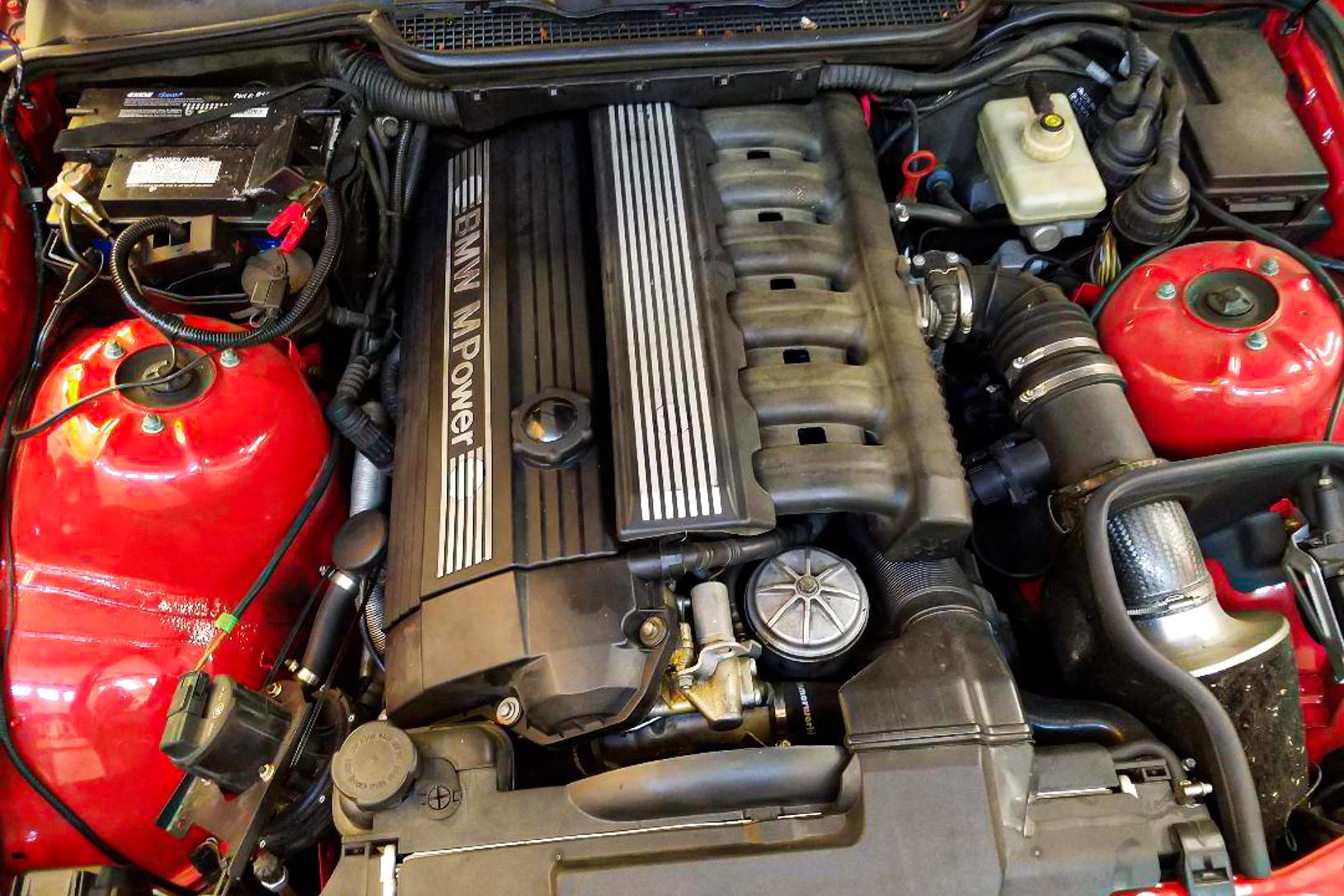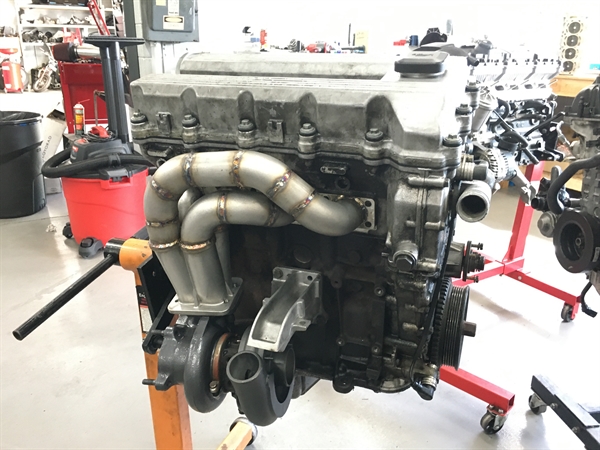How to Keep Your BMW 318ti Running Efficiently for several years
How to Keep Your BMW 318ti Running Efficiently for several years
Blog Article
Key Attributes to Seek When Buying an Engine for Automotive Applications
When thinking about the acquisition of an engine for vehicle applications, a number of crucial features necessitate mindful evaluation to ensure optimal efficiency and capability. From power and efficiency abilities to fuel adherence, effectiveness, and longevity to exhausts criteria, each element plays a vital function in identifying the engine's viability for certain automotive requirements. Cost-effectiveness stays a crucial element in the decision-making procedure, balancing quality with monetary considerations. These attributes collectively add to the overall effectiveness and dependability of the engine, influencing the driving experience and long-lasting complete satisfaction of the customer.
Power and Efficiency
When selecting an automotive engine, purchasers focus on power and efficiency to make sure optimum driving experience and efficiency. The power outcome of an engine, commonly gauged in horse power (HP) or kilowatts (kW), determines the velocity, leading rate, and total abilities of an automobile. Higher power scores typically result in quicker acceleration and far better efficiency, specifically throughout overtaking or carrying hefty lots. Efficiency, on the other hand, includes a more comprehensive range of features, consisting of gas effectiveness, discharges, reliability, and overall driving characteristics. A well-performing engine not just supplies power effectively however likewise operates efficiently throughout various speed varieties and driving conditions.
Purchasers frequently consider the engine's torque result together with its power rating. Torque, gauged in pound-feet (lb-ft) or Newton-meters (Nm), shows the engine's rotational force, affecting the car's capability to tow, climb inclines, and accelerate from grinding halt. A balance in between power and torque is vital for achieving a versatile and responsive driving experience. Furthermore, factors such as engine variation, turbocharging, and hybrid modern technologies play considerable duties in improving both power and efficiency levels. Eventually, selecting an engine that uses a powerful combination of power and efficiency guarantees a satisfying and effective driving experience. bmw 318ti.
Gas Performance
Enhancing fuel performance is a paramount consideration for consumers when reviewing vehicle engine options. The efficiency of an engine directly influences operating expenses and ecological footprint. One vital element affecting fuel performance is the engine's layout and technology. Modern engines with attributes like direct fuel shot, turbocharging, and variable valve timing can dramatically enhance fuel performance by improving combustion processes and minimizing power loss. Additionally, the total weight of the engine and vehicle, in addition to the aerodynamics, play critical roles in establishing fuel consumption.

Durability and Integrity
Achieving durable performance and dependable procedure is vital for consumers reviewing the toughness and reliability of auto engines. When taking into consideration an engine for automotive applications, toughness refers to the engine's capability to withstand wear, tension, and severe operating problems over an extended period. Integrity, on the other hand, indicates that the engine can consistently do its desired function without unforeseen failures or failures.
Consumers must look for engines built with high-grade materials and accurate design to ensure longevity. Parts such as crankshafts, pistons, and bearings must be sturdy to handle the engine's power outcome without premature wear. In addition, engines equipped with sophisticated cooling systems, efficient lubrication, and durable purification devices tend to exhibit higher levels of dependability.
Routine upkeep and adherence to supplier referrals are also essential aspects in protecting an engine's longevity and integrity. By adhering to upkeep timetables, making use of advised liquids, and resolving any kind of concerns without delay, customers can maximize the life expectancy and performance of their automobile engines. Ultimately, prioritizing durability and reliability in engine option can bring about an extra gratifying ownership experience with fewer unanticipated disturbances.
Discharges Compliance
Ensuring conformity with emissions regulations is an important element of assessing automotive engines for eco mindful consumers. With increasing worries regarding air quality and ecological effect, strict exhausts requirements have actually been established globally to minimize damaging pollutants launched into the environment. When acquiring an engine for automobile applications, it is important to consider its exhausts compliance to decrease the carbon footprint and stick to legal needs.
Modern engines are furnished with advanced discharge control technologies such as catalytic converters, exhaust gas recirculation (EGR) systems, and careful catalytic reduction (SCR) to minimize harmful exhaust gases like nitrogen oxides (NOx), carbon monoxide gas (CO), and hydrocarbons (HC) These systems play a vital role in making sure that the engine meets the specified exhausts standards and operates within permitted limits.

Cost-effectiveness
When considering vehicle engine purchases, examining cost-effectiveness is paramount for consumers looking for both performance and worth. Cost-effectiveness in engine acquisition entails more than simply Going Here the first purchase cost. It incorporates the overall expenses related to upkeep, gas usage, and possible fixings over the engine's life expectancy. Choosing an engine that provides a balance between long-term financial savings and ahead of time costs can lead to significant benefits for the customer.
One trick facet of cost-effectiveness is fuel efficiency. Engines that are designed to take full advantage of fuel economy can bring about considerable cost savings in time, especially for people who drive frequently or over lengthy ranges. Furthermore, considering the schedule and cost of spare components and maintenance can contribute to the total cost-effectiveness of an engine. Making certain that upkeep and fixings are affordable and available can protect against unforeseen financial worries down the line.

Conclusion
To conclude, when acquiring an engine for vehicle applications, it is important to take into consideration essential functions such as power and performance, fuel performance, integrity and resilience, emissions compliance, and cost-effectiveness. These elements are crucial in making certain that the pop over here engine fulfills the requirements of the car and runs properly in numerous driving problems - bmw 318ti. Making an informed decision based upon these standards will inevitably bring about a successful and efficient auto engine acquisition
From power and performance capacities to sustain adherence, efficiency, and durability to emissions criteria, each element plays a crucial duty in determining the engine's viability for particular automotive demands. Engines created to run on alternate fuels such as electric power, hybrid systems, or biofuels can supply enhanced gas economic situation and reduced discharges compared to typical gas or diesel engines. Consumers must thoroughly consider the gas effectiveness ratings and modern technologies included into automobile engines to make enlightened getting decisions that straighten with their priorities for expense savings and sustainability.
When taking into consideration an engine for auto applications, durability refers to the engine's capacity to withstand wear, stress see this and anxiety, and severe operating problems over an extended period.In final thought, when acquiring an engine for automotive applications, it is vital to consider essential attributes such as power and efficiency, fuel effectiveness, integrity and durability, emissions compliance, and cost-effectiveness.
Report this page